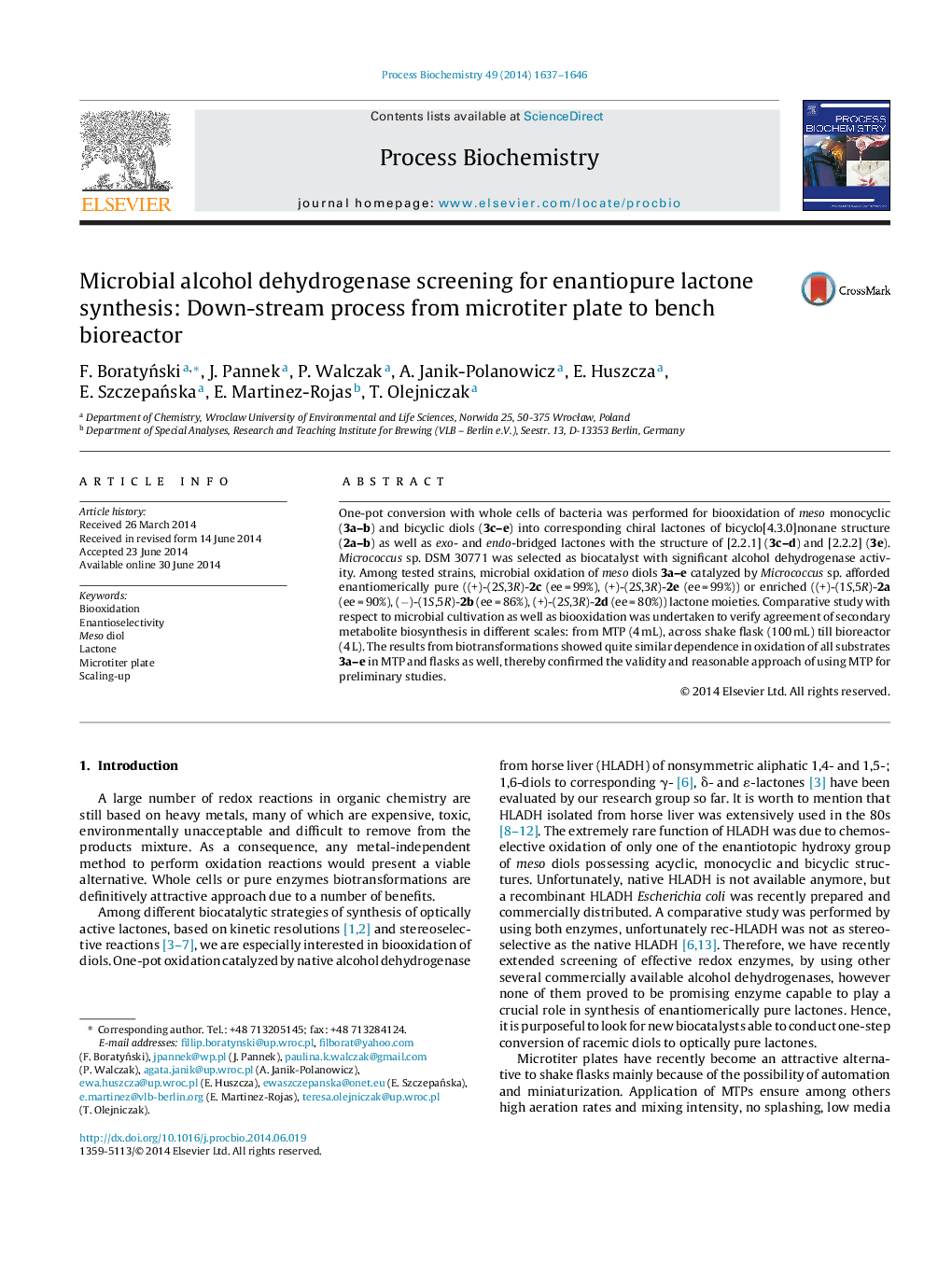| Article ID | Journal | Published Year | Pages | File Type |
|---|---|---|---|---|
| 34495 | Process Biochemistry | 2014 | 10 Pages |
•One-pot oxidation of meso diols to chiral lactones catalyzed by bacterial strains.•Micrococcus sp. DSM 30771 as biocatalyst with significant alcohol dehydrogenase activity.•Whole cells biotransformation as alternative to enzyme HLADH oxidation.•Scale-up methodology from microtiter plate to bioreactor.
One-pot conversion with whole cells of bacteria was performed for biooxidation of meso monocyclic (3a–b) and bicyclic diols (3c–e) into corresponding chiral lactones of bicyclo[4.3.0]nonane structure (2a–b) as well as exo- and endo-bridged lactones with the structure of [2.2.1] (3c–d) and [2.2.2] (3e). Micrococcus sp. DSM 30771 was selected as biocatalyst with significant alcohol dehydrogenase activity. Among tested strains, microbial oxidation of meso diols 3a–e catalyzed by Micrococcus sp. afforded enantiomerically pure ((+)-(2S,3R)-2c (ee = 99%), (+)-(2S,3R)-2e (ee = 99%)) or enriched ((+)-(1S,5R)-2a (ee = 90%), (−)-(1S,5R)-2b (ee = 86%), (+)-(2S,3R)-2d (ee = 80%)) lactone moieties. Comparative study with respect to microbial cultivation as well as biooxidation was undertaken to verify agreement of secondary metabolite biosynthesis in different scales: from MTP (4 mL), across shake flask (100 mL) till bioreactor (4 L). The results from biotransformations showed quite similar dependence in oxidation of all substrates 3a–e in MTP and flasks as well, thereby confirmed the validity and reasonable approach of using MTP for preliminary studies.
